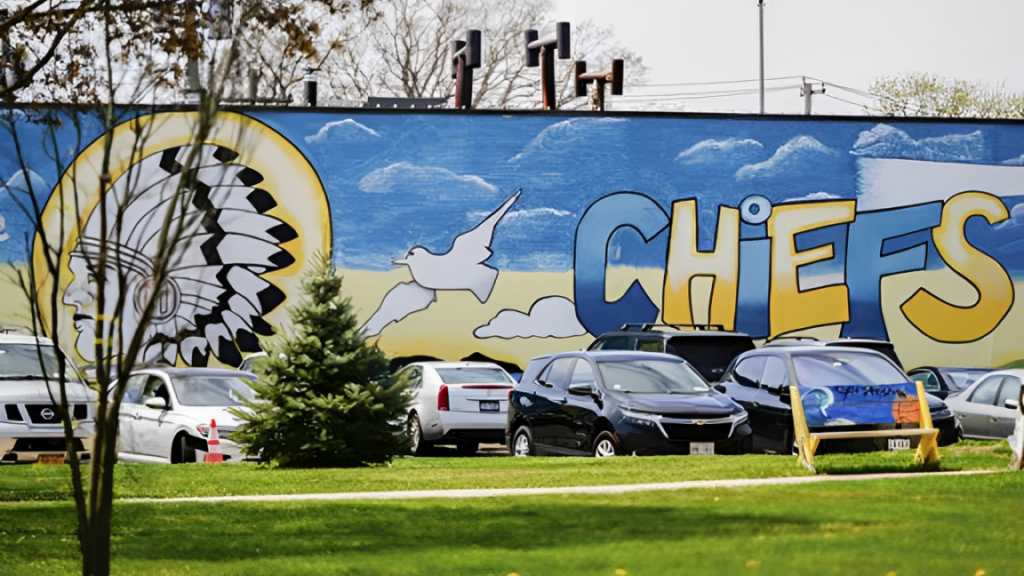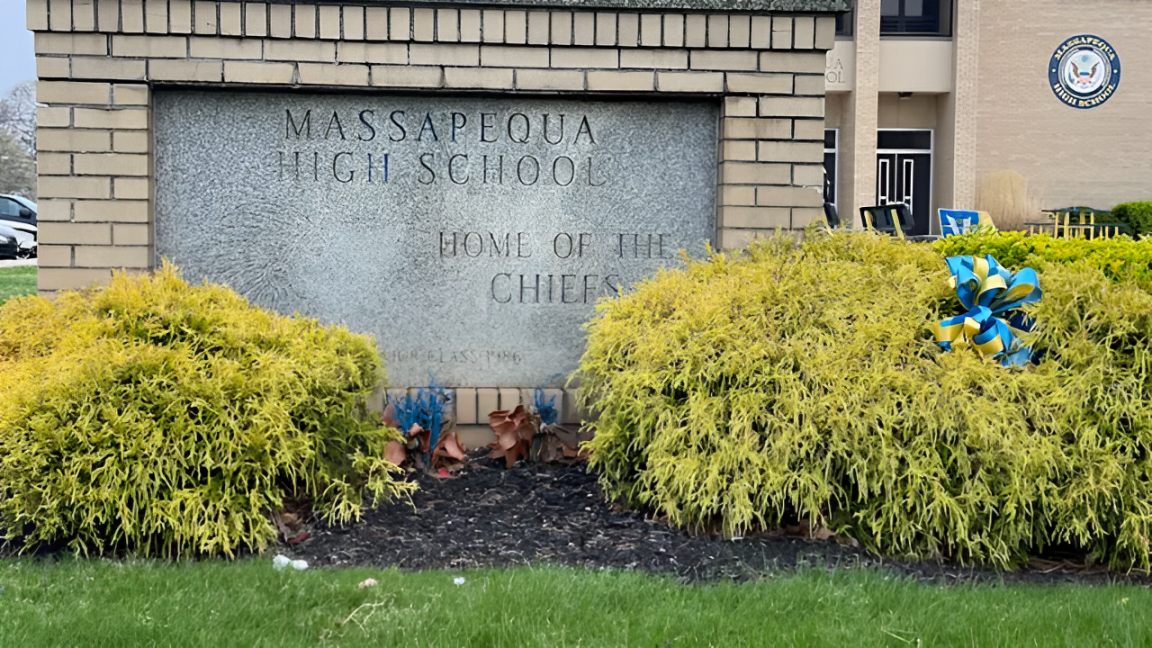The ongoing debate about Native American mascots in schools continues to divide communities, with Massapequa, a town on Long Island, becoming the latest focal point in this contentious issue.
For many years, the town’s high school mascot, the “Chiefs,” featuring an image of a Native American man wearing a headdress, has sparked debate.
What was once a source of pride for students like Adam Drexler, who wore the Massapequa Chiefs jersey during his high school hockey days, has now come under scrutiny as the town faces pressure to retire the mascot.
Drexler, a Chickasaw Nation member, grew up in a predominantly white town, adopted by a Jewish family. As he learned more about his Indigenous roots, Drexler began to view the mascot in a new light. “There was no tribe east of the Mississippi that ever wore a headdress — ever,” Drexler said.
“How can you argue for a symbol that has no significance or relevance here, while at the same time claiming you honor and respect the culture and history of the people this town is named after?”
Massapequa, located about 40 miles east of Manhattan, has a predominantly white population, and the Native American imagery around town is hard to miss.
From the school’s logo on buildings to murals painted in protest of the mascot change, the town has long embraced the “Chiefs” identity.
A statue of a Native American figure wearing a headdress is displayed near the post office, while signs featuring the Chiefs’ logo are prominently placed around the town.
The controversy intensified when the state of New York mandated in 2022 that all schools retire Native American mascots by the end of the school year.
While some school districts have complied, Massapequa has refused, filing a federal lawsuit to challenge the ban. The town argues that the decision to use Native American imagery is protected by the First Amendment, but the state says the district has “stayed silent” on the issue for years.
The Trump administration recently intervened, launching an investigation into whether the state is discriminating against Massapequa by threatening to withhold funding for not complying with the mandate.
The local school board has not made public statements on the matter, but it issued a statement expressing its support for the federal investigation.
Former President Donald Trump, who has made multiple visits to Long Island in recent years, has also weighed in, publicly supporting Massapequa’s stance on keeping its mascot.

“Forcing them to change the name, after all of these years, is ridiculous and, in actuality, an affront to our great Indian population,” Trump wrote in a social media post.
He even posed with a Massapequa Chiefs sweater in the Oval Office, expressing his belief that teams like the Kansas City Chiefs should keep their names.
While Trump and others defend the mascot as a tribute to Native Americans, many Indigenous activists see the imagery as dehumanizing. Joseph Pierce, a Cherokee Nation citizen and director of Native American and Indigenous Studies at Stony Brook University, argues that these mascots reduce Native people to stereotypes.
“It is as if this image were a shorthand for any Indians,” Pierce said. “And that reduces us to a type, rather than portraying us as distinct peoples.”
Indigenous activists contend that these mascots contribute to the broader societal misconception that Native Americans are relics of the past. Joey Fambrini, a member of the Delaware Tribe of Indians, points out that this dehumanization directly contributes to the neglect of ongoing challenges faced by Native communities, including poverty, lack of access to clean water, and inadequate education.
The town of Massapequa, however, continues to stand firm in its belief that the mascot honors the history of the Lenape people, who once inhabited the area before being displaced by colonial settlers. Some residents argue that the intention behind the mascot is not to offend but to show respect.
“It’s not that we’re trying to do anything disrespectful,” said Christina Zabbatino, a local mother. “I would be honored if it were my face, you know what I mean?”
But critics maintain that the use of the mascot is rooted in ignorance and perpetuates harmful stereotypes.
John Kane, a Mohawk tribe member, has spent years advocating for the removal of Native American mascots, arguing that such symbols trivialize the historical violence and displacement faced by Indigenous peoples.
“The idea that this is some sort of honor to us? I mean, come on,” Kane said. “It’s an absurd proposition to even suggest.”
As the legal battle unfolds, Massapequa’s mascot remains a symbol of the deep divide between those who see it as a source of pride and those who view it as a painful reminder of the harm caused by centuries of colonization.
Whether the town will ultimately comply with state mandates or continue to defy them remains to be seen. But one thing is clear: the debate over Native American mascots is far from over.
Disclaimer- Our team has thoroughly fact-checked this article to ensure its accuracy and maintain its credibility. We are committed to providing honest and reliable content for our readers.






